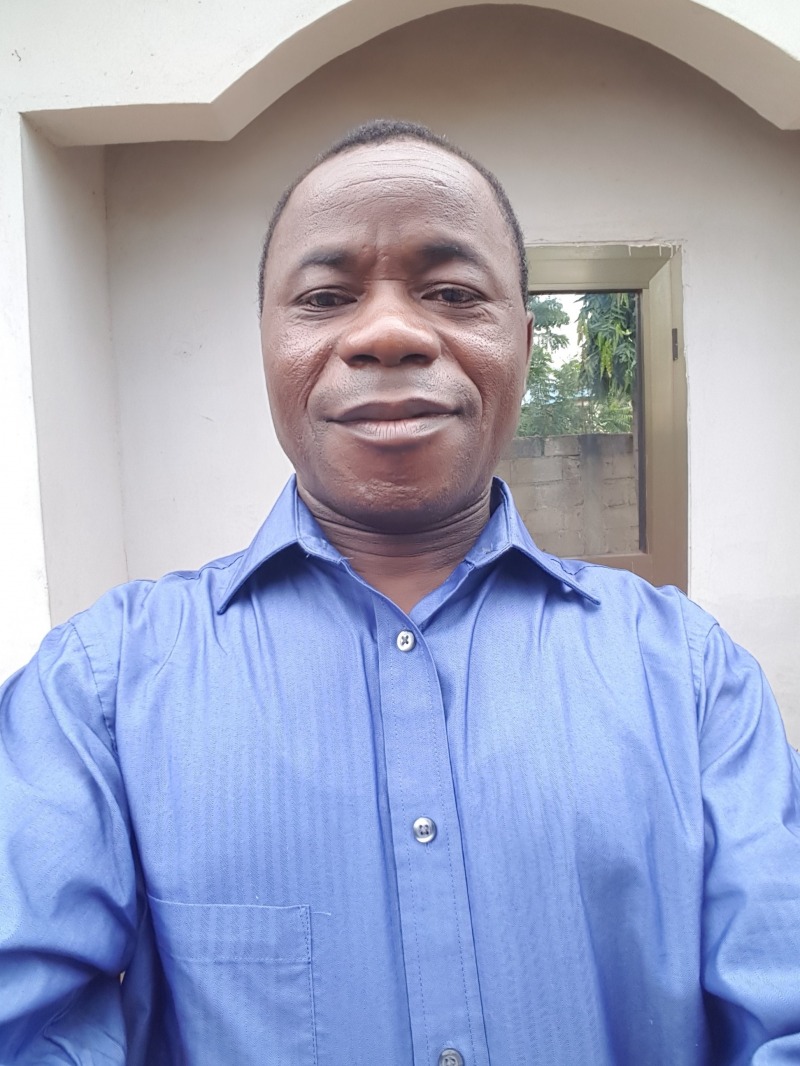Aging well, aging healthy and aging happy

Aging is a global phenomenon. The number of older persons continues to grow and this creates opportunities to explore how we can best serve this population.
Dr. Paul Issahaku, assistant professor at Memorial’s School of Social Work, spent three weeks in Ghana to study the experiences of older persons.
Dr. Issahaku received a grant from the Social Sciences and Humanities Research Council /Vice President’s Research Grants Competition (SSHRC/VP - recently renamed SSHRC Explore). This internal funding opportunity provides assistance towards short-term research projects (normally 12-18 months) undertaken by faculty members in disciplines supported by SSHRC.
Believing the best way to understand a phenomenon is to talk with the people who are experiencing it, Dr. Issahaku conducted 23 interviews with people 60 years-old and older, across the country. He focused on what it means to be growing older, how older persons felt about aging, their unique experiences, their challenges and opportunities as they age, how contemporary societal changes have impacted them and what kind of support they need to live well into their old age.
Talking with people from across the north savannah interior zone and south along the coast, Dr. Issahaku sought to discern if there were differences based on gender and whether people’s occupations had an impact on their attitudes about growing older and the way one ages.
Conversing with people who had held various jobs, including teachers, politicians, farmers and housewives, Dr. Issahaku found that the way people understood growing older did indeed differ across gender and occupation.
Many women traditionally performed several jobs, including a lot of physical work, such as getting water, cooking, caring for children, whereas most men may have had white-collar jobs or did farming work and may have had more time for relaxation. These differences could lead to women becoming weaker and having health issues which manifested earlier or were more pronounced than men.
Aging can come with a unique set of challenges and opportunities.
In Ghana, opportunities for older people include priority service from public institutions - when they go to a hospital or bank, they get precedence and don’t have to join lines. Many older people may receive acknowledgement and gifts of appreciation from younger people whose lives they impacted because of the job they held earlier in life, for example, former teachers described being visited by their past students as a significant benefit of growing older.
Older persons in Ghana were once highly regarded as embodying cultural wisdom. They played key roles in family decisions such as who their sons would marry and they gave their daughters away in marriage. No family decision would be made without them and their word would be final.
Today, many older people in Ghana feel that the “ideal state of being older” from the past is gone, and many feel there is no longer value placed on the wisdom of older persons in contemporary society. Young people value knowledge they can get from books and the internet and make choices based on these and other sources of information without family consultation. Young people now talk about human rights and a parent doesn’t have any right to decide who they marry or what job they choose. Older persons are not happy about this change and find it unsettling. Many feel that young people think they can’t learn from those who have much life experience and they fear for their children’s lifestyle, disrespect and seeming loss of values.
These changes can contribute to feelings of isolation. This isolation is compounded by contemporary changes: technology, migration and urbanization. Dr. Issahaku found that many older people felt disconnected because they didn’t know how to use modern technology. For many, a lack of money can be an issue and they may face poverty because they are no longer active in their occupations and earning an income. Migration has also lead to big changes, since young people are moving from rural to urban areas and leaving older parents behind, finding someone to marry of their own volition and settling in new locations.
Dr. Issahaku specifically asked his interviewees what society, government and service providers should be doing to support older persons.
Dr. Issahaku plans to write a series of articles on his findings, and is considering compiling them into a book. His future plans are to look into the aging phenomenon in Canada and Newfoundland and Labrador. He would like to highlight the strengths of older persons and the contributions of this group to community well-being.
Policy and practice implications
Dr. Issahaku believes his findings have implications for well-being and his goal is to inform policy-makers on what types of formal and informal support aging persons need to enable them to age well, age healthy and age happy.